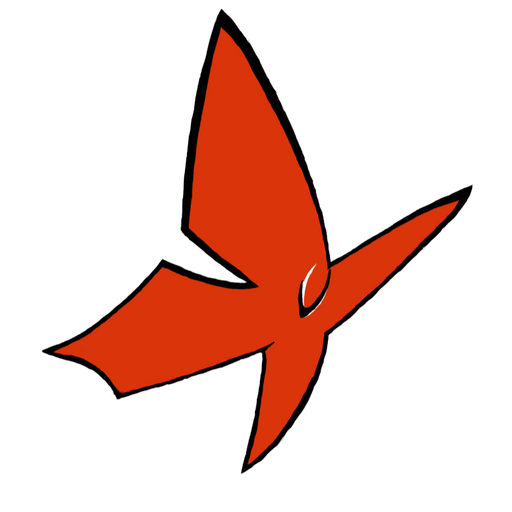With everything going on with Twitter and Reddit I feel like I have a new appreciation for having my own local knowledge base on Logseq.
Demo page: https://demo.logseq.com
Logseq is fantastic.
The outline approach is great for quick note contributions without worrying about the look of the notes you’re trying to capture. Writing journal entries or pages is so seamless, and linking is so easy. Block references are also a powerful addition.
The mobile version is lacking compared to say obsidian, but I’ve found it good as I’m not focused on propping up the application, rather focusing on my content/notes.
Thank you for your feedback
For those just glancing through: what would you define “knowledge management” as?
knowledge management refers to how to organize, store, retrieve, and use information.
In the context of personal knowledge management using tools like Logseq, the definition could be something like this:
Personal Knowledge Management (PKM) is the practice of capturing, organizing, and making sense of one’s own observations, ideas, and experiences to understand and share knowledge. It’s about creating a system that allows you to capture thoughts and ideas easily, make connections between different pieces of information, and retrieve and use this knowledge effectively.
For example, if you’re learning a new topic, you might read a variety of sources and take notes in Logseq. Over time, you’d review and refine these notes, connecting new insights to existing ones, creating a rich, interconnected knowledge base.
So is it like a cross between journaling and citation management software? I’m trying to figure out what proponents are getting out of this above what I get from just bookmarking interesting sites.
Tiago Forte’s book Building a Second Brain has some good arguments for using a personal knowledge management system.
If it helps you to visualize, one somewhat common/popular form of personal knowledgment management is a wiki. Like Wikipedia, except it’s personal (or for a small team). You can keep track of references and also make notes about things, but it’s also about connecting ideas together. Just like on Wikipedia, you can have a page about, let’s say LLMs, which includes all the software and approaches you’ve tried, results, sample snippets, references to repos, but as you’re writing about what you’ve tried and what worked, you might also have links to other wiki pages, like programming languages, build tools, test tools, etc. As you document more and build more knowledge, your articles all get meshed together in one well-organized network. Ideally it should be easy to navigate if you come back to a technology later and need to get back up to speed.
Some day those sites won’t be there any more - and the Wayback Machine doesn’t store everything. Plus what if you just want to save a great quote from something you read?
The the Wikipedia article on personal knowledge management is a little dense, but basically it’s a way to keep track of everything you learn or consume and link them together to develop new ideas or insights. Sometimes people will call it a second or digital brain. There’s a lot of different ways to do it, and recently there’s been a lot of software like Logseq, Obsidian, and Notion, that facilitates linking everything together and keeping it organized using [[hyperlinks]] and #tags among other things.
so to really dumb it down, is it basically like a digital version of a paper notebook, except that it can do more stuff?
The simplest forms are. Except hyperlinks are super powerful and unlike paper you can restructure and recomnect as you see fit. Since it is computer software, you can also get other benefits like a working to do-list next to your medicine list or machine learning indexing and cross-referencing your documents. Take a look at the Devonthink website for an idea of how idea management on steroids look. On the other end of the spectrum you have things like Obsidian where everything is simply stored in pure markdown text and synced by you how you see fit. There’s a solution for every temper these days.
Ehhh. Kinda? The feature that differentiates it from a normal notebook is the ability to link pages. You’re basically constantly searching for connections while building your own personal Wiki.
deleted by creator
I don’t really care much for plugin support on mobile as I can see it could cause more issues than help. I do hope the mobile app gets better though.
Obsidian manages ok and the utility there is pretty huge. Particularly some of the touch specific plugins.
I won’t bother trying it out if it forces me to use chromium
It seems that your browser doesn’t support the new native filesystem API, please use any Chromium 86+ based browser like Chrome, Vivaldi, Edge, etc. Notice that the API doesn’t support mobile browsers at the moment.
The dev team is working on replacing the filesystem API with another protocol supported by Firefox. That page is just a demo; you only need the support if you want to save your changes to the demo. You can try the desktop app via flathub.
flathub install logseqthat tripped me up too - but it’s just the web demo. if you install it, your browser doesn’t matter
deleted by creator
you have complete control over your data with logseq.
deleted by creator
Logseq does not require an internet connection or the use of a browser. The last part is true for now. Logseq PDF ready as others mentioned here is one of its best features. For code and email Logseq is not a good fit for either yet thought it can be extended to do so.
The files are stored as markdown or org files. You can also use another editor if you want. Also you do have full control. You don’t need a browser. Logseq is a stand alone and offline app.
I had no idea such a thing existed, thanks for posting! I currently use Notion at work, which is similar, but this looks promising for home use.
i’d never heard of this concept! i have a disorganized stack of markdown files - notes, to-do and packing lists - that this looks ideal to tame
That’s what I used to do as well. This is much more convenient.
I love Logseq! When I first started using it, I was categorizing all my notes as I was slowly moving over my knowledge base. And over time, I’ve switched over to using the Journal more and more! It’s extremely well done.
Love Logseq for a lot of reasons, but their PDF annotator is really a gamechanger. I can open a PDF, mark it up, copy the highlighted reference to my notes, and then when I review my notes just by clicking the copied reference I can jump to that section of the PDF. Awesome.
This paired with the flash card functionally is a game changer.
Using it and I love it! Can definitely recommend it!
I use Logseq routinely. So useful when you set up daily templates to fill out for your day.
Agree! A small daily template is where I start my day and honestly it’s such a nice routine now.
I don’t really make use of templates. I do love the journal. It makes it easy to jot things down.
The journal is the biggest reason I move from Obsidian to using Logseq regularly. There is so much less friction just going to journal and writing ideas rather then figuring out where to add the note too before typing.
True. The journal, the block level editing, the outliner view, and being FOSS are strong reasons to consider Logseq over Obsidian.
I haven’t used Logseq, but I’ve found trying to categorise notes in Obsidian made me use it less so I just rely on backlinks as tags and to create connections between notes and dump most things in the primary vault folder. I’ve gotten comfortable journaling using daily notes with templates.
That’s why I prefer Logseq. I never think about what folder something fits into. I write in the journal and tag stuff. Once there is enough information regarding a topic, I create a page for it. Also, the fact that Logseq is open source is a major plus in my eyes.
Doesn’t like Firefox mobile apparently. For a privacy focused platform you’d think it would support that over Chrome.
its lack of protocol support from firefox end. Firefox doesn’t support the FS API. The logseq team plans to migrate to a different protocol that is supported by FF OPFS
Currently use Standard Notes to dump, in a semi-organized way, kind of everything from jottings to links, recipes, lists, ad hoc wiki (e.g. for how to use kbin).
Is Logseq, or Obsidian, a step further from this? Say, with greater ways to interact with what I collect?
I don’t use standard notes, but from what I know, the base idea is similar, but they really differ. It’s hard to explain. It’s the same as asking what the difference is between Notepad++ and Notepad since both can edit text.
I really recommend downloading logseq and giving it a shot, the best way to see what it can do.
I’ll definitely play around with it
I’d say Logseq and Obsidian go a step further compared to standard notes. They each do so in a slightly different way though. So probably worth trying both. I prefer Obsidian, but Logseq is also great.
yoink
I am using this now
This looks intriguing! I currently use BookStack as a documentation platform, but it seems Logseq might be a step above something like BookStack?















